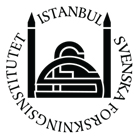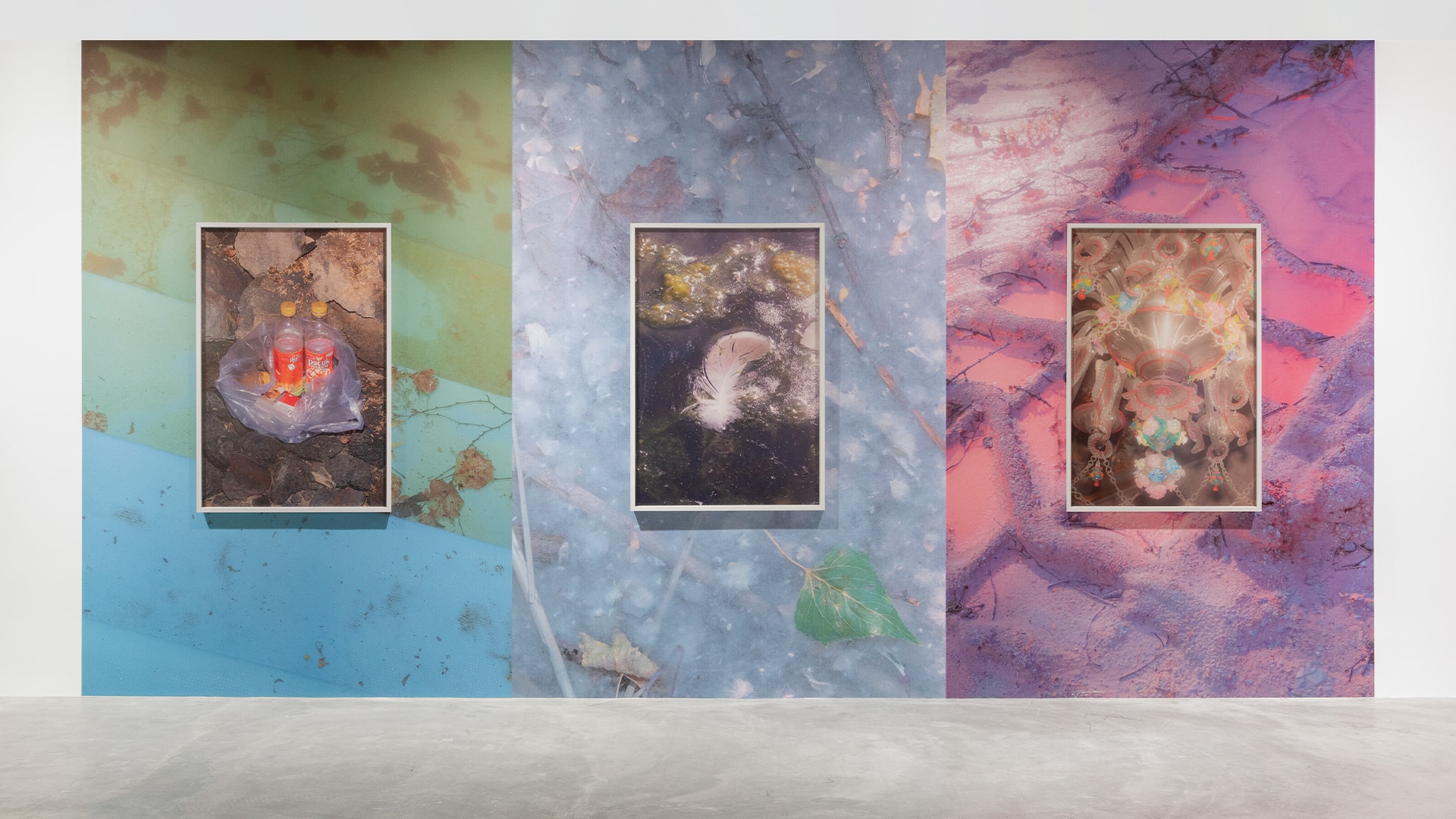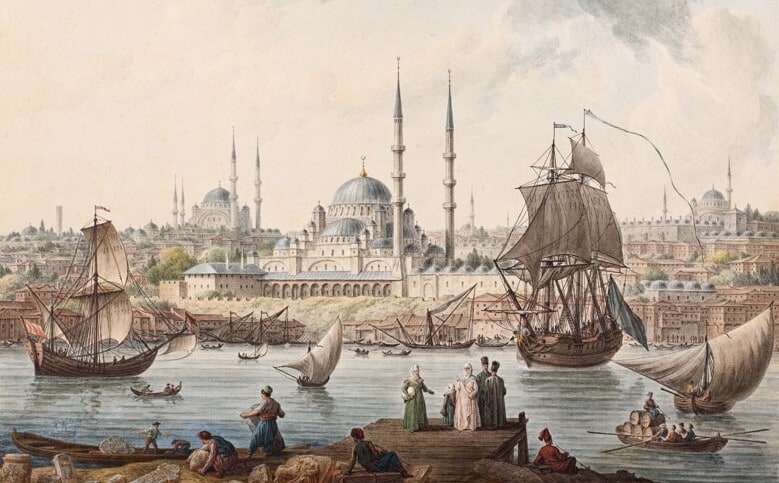Talk
February 1, 2024 / 18:30
What can a tile reveal to us from a cultural heritage?
Pera Museum is delighted to be hosting an artist talk titled “Tiles and Tales” within the scope of Souvenirs of the Future, with exhibited artist Burçak Bingöl and architect and researcher Gertrud Olsson. The talk will focus on cultural heritage within the context of ceramics, traditions and identity; with Bingöl as an artist working intimately with ceramics and Olsson as the author of the book titled Den lilla skalan i den stora – kaklet i osmanska rum [The small scale in the large: Tiles in Ottoman rooms] (currently only available in Swedish). Art historian and art writer Seda Yörüker will moderate the talk.
Burçak Bingöl uses ceramics as a cultural material to construct psychological landscapes that deal with geography, memory, belonging, and representation. She utilizes familiar forms and images to visually render both Eastern and Western traditions. Since moving to Istanbul in 2010, she started working around the historical and geographical associations of the ceramic material. Throughout the years she has been working on a visual translation of traditional imagery and forms. Since 2017, the artist has been focused on a 16th-century çini panel at the Topkapı Palace and its cultural and artistic influences throughout China, the Ottoman Empire, and Europe along the Silk Road. Her work exhibited at Souvenirs of the Future titled Route Saz Yolu proposes a new interpretation in which its architectural, sensory, and conceptual relations to space open up a research field of visual exploration.
Gertrud Olsson’s book deals with the long history of Ottoman tiles and highlights their importance in rooms and architecture, with a focus on the time spanning from the 13th to the 19thcenturies, and ends with questions about the heritage of today. Since the beginning of time, patterns and ornaments have been fundamental in all cultures, not only in Turkey. In the book, the ornament, the material and the story of craftspeople, the artists and architects who worked together to create the Ottoman tiled walls, meet. It aims to investigate how new know-hows are formed through the meetings between different cultures that have collaborated, as well as to bring attention to the character of tiles and their perceptual properties in a specific room. The cultural heritage perspective includes materiality as well as the immateriality perspectives of the art form of tiles.
The event at Pera Museum Auditorium is free of charge and will be in Turkish and English. The simultaneous translation will be provided. No reservations are taken.
In collaboration with

Temporary Exhibition
The exhibition focuses on the memories recalled through objects whilst exploring the connections between memory and future imaginings through a contemporary lens. The cultural and symbolic value and significance of objects taken as souvenirs, those that remind us of a certain place and time, or those that are collected, weave together personal journeys and the memory of the region. Instead of a nostalgic attachment to the past, it proposes contemplating how the future will be remembered and focuses on memory's future-oriented functions.
Click for more information about the exhibition.


When regarding the paintings of Istanbul by western painters, Golden Horn has a distinctive place and value. This body of water that separates the Topkapı Palace and the Historical Peninsula, in which monumental edifices are located, from Galata, where westerners and foreign embassies dwell, is as though an interpenetrating boundary.
Tuesday - Saturday 10:00 - 19:00
Friday 10:00 - 22:00
Sunday 12:00 - 18:00
The museum is closed on Mondays.
On Wednesdays, the students can
visit the museum free of admission.
Full ticket: 300 TL
Discounted: 150 TL
Groups: 200 TL (minimum 10 people)